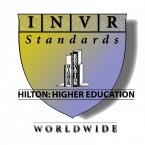|
This is an opportunity to reflect on articles in this issue of the ejournal constructively and possibly build on the research.
4 Comments
David J. Jefferson
1/24/2010 05:24:37 am
As a followup to the article that we wrote for this issue ("An Expose of the Emperor: The Illusion of Reverse Discrimination"), we'd like to propose seven practical tips to guide interactions with individuals who claim that reverse discrimination is operant, or that American society is contemporarily post-racial. These recommendations are:
Reply
KOH
1/24/2010 12:11:53 pm
Excellent recommendations. I would also be curious to know if you and/or your co-author have had an opportunity to operationalize these seven tips in a workshop forum. Also has it been your experience that different ethnic groups react to your research differently? If so, how?
Reply
2/5/2010 06:48:54 am
Like your discussion on color blind; it - "color blindness" is a trick bag in the socio-legal process.
Reply
cleveland percy
2/10/2010 02:06:09 am
The opportunity to submit my article on race/cultural labels was a great pleasure. In my verbose presentation of a complex issues I hope the message is not lost that personal character has no color and "we do not have to be twins to be brothers" Anon I would also like to congratulate the other writers who have taken their time to offer positive perspectives.
Reply
Your comment will be posted after it is approved.
Leave a Reply. |
TACful FOOTNOTES
TACful stands for transdisciplinary and African-centered. This blog complements the Journal of Unabridged Genius and is designed to provide current, past and future contributors (and guests, such as students, employees and clients) with an open forum to continue discussions and/or provide clarifications to their research and discussions points. Participants are encouraged to check in often and bookmark this ejournal and blog. Archives
November 2010
Categories |


 RSS Feed
RSS Feed
